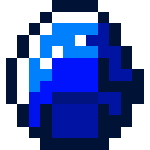Template:Centered pull quote/doc
| File:Edit-copy green.svg | This is a documentation subpage for Template:Terminate sentence It may contain usage information, categories and other content that is not part of the original template page. |
Usage
{{Centered pull quote}} is a template meant for pull quotes, the visually distinctive text that is already present in the same article.
- NOTE: This template should not be used for quotations if they are not repeated elsewhere in the main text. The Manual of Style recommendation is:
- For visually distinctive quotation, use {{Quotation}} template.
- For long quotations, use the HTML <blockquote> element, such as through the use of the {{Quote}} or {{quote box}} template.
- Pull quotes work best when used with short sentences, and at the start or end of a section, as a hint of the section's content.
- For shorter pull quotes of 50 words or fewer in a similar style, consider using {{Rquote}} which sets the quote off to either the right or left as in a magazine sidebar. This can be effective on essay pages and WikiProject homepages.
Syntax
{{centered pull quote|quote text}}{{centered pull quote|quote text|author=author or speaker}}{{centered pull quote|quote text|author=author or speaker|source=title of article, speech, book, etc.}}
Parameters
- Parameter 1
- text of the quote; use
<br />between paragraphs. - Required
- Note: if the quote text contains one or more "=" (equal signs), then the template must be called as {{centered pull quote|1=quote text}} (see "Equals sign in parameter value")
- author
- Name of the person that wrote or spoke the text being quoted. Can include wiki syntax.
- source
- Source of the quote (publication title, speech, etc.). Can include wiki syntax.
- bgcolor
- The color of the background.
- wide
- When set to "yes", the quote expands to the entire width of the page. Useful for small quotes, but may clash with other floating objects, such as infoboxes.
Simple example
{{centered pull quote|quote text}}
| “ | To be, or not to be. | ” |
Sourced example
{{
centered pull quote|Life is like riding a bicycle. To keep your balance you must keep moving.
|author=[[Albert Einstein]]
|source=in a letter to his son<ref>[[Walter Isaacson]], ''Einstein: His Life and Universe'' (2007), p. 367.</ref>
}}
| “ | Life is like riding a bicycle. To keep your balance you must keep moving. | ” |
—Albert Einstein, in a letter to his son<ref>Walter Isaacson, Einstein: His Life and Universe (2007), p. 367.</ref> | ||
<references group="" responsive="1"></references>
Other examples
{{centered pull quote|1=F=ma|author=[[Isaac Newton]]}}
(the 1= is necessary as quote text contains an equal sign)
| “ | F=ma | ” |
| — Isaac Newton | ||
{{centered pull quote|1=Thus:
:<math>E=mc^2</math>|author=[[Albert Einstein]]}}
(quote text contains an equal sign and math syntax)
| “ | Thus:
|
” |
See also
- Template:Bq—quote without border, page-wide; like (and compatible with parameters of) the older {{Quote}} but with more features; conversion from all others listed here is trivially easy (retaining key data, losing decoration, etc.)
- Template:Centered pull quote—pull quote between large quotation marks, page-wide; should rarely be used in articles and is not for block quotations, only pull quotes
- Template:Quote—quote without border, page-wide, smaller-sized attribution
- Template:Quotation—quote with border, page-wide
- Template:Quote box—quote with border, in a reduced floating box
- Template:Rquote—pull quote between large quotation marks, in a reduced floating area; also rarely appropriate in articles
- Template:Talkquote—for quoting other editors (or guidelines, etc.) on talk pages (in a block)
- Template:Tq—for quoting on talk pages, inline
- Category:Quotation templates
